Episodes
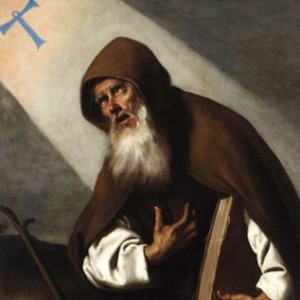
Tuesday Apr 27, 2021
An Introduction to Christian Mysticism with Dr. Jason Baxter
Tuesday Apr 27, 2021
Tuesday Apr 27, 2021
In his new book An Introduction to Christian Mysticism: Recovering the Wildness of Spiritual Life, Wyoming Catholic College professor Dr. Jason Baxter notes that today mysticism makes us more than a little nervous. It seems to have New Age and Eastern connotations. Nonetheless, he notes, “in the premodern age..., ‘mysticism’ wasn’t some bizarre, exotic, cultish, or unusual phenomenon (like it has become), stored on bookshelves dealing with paranormal occurrences; rather it was seen as the lifeblood of prayer and adoration of God in the soul.” Then he goes on, “Ignoring it would be like selling a precious family heirloom at an estate sale because you didn’t know what it was.”
In this podcast, Dr. Baxter begins by explaining what this heirloom—what mysticism is.
For more of Dr. Baxter's books, articles, and lectures go to jasonmbaxter.com

Tuesday Apr 20, 2021
An Invitation to "The Brothers Karamazov" with Prof. Adam Cooper
Tuesday Apr 20, 2021
Tuesday Apr 20, 2021
In his 1880 novel The Brothers Karamazov Fyodor Dostoevsky explores questions of good and evil, alienation and belonging, the existence of God and the nature of morality.
As scholar and author Kenneth Boa writes in his four-volume A Taste of the Classics, “The Brothers Karamazov is a remarkable work that explores the whole human range of behavior, from the depths of depravity to the heights of exultation and from the meanness of the human spirit to the great nobility of which it is capable.”
This semester, Wyoming Catholic College seniors have been reading “The Brothers K” under the capable tutelage of Prof. Adam Cooper. I asked Prof. Cooper what attracts him to the novel.
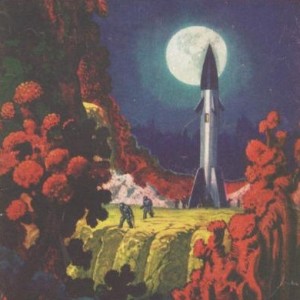
Tuesday Apr 13, 2021
Can Science Fiction Be the Epic of Our Times? with Dr. Frederick Turner
Tuesday Apr 13, 2021
Tuesday Apr 13, 2021
It makes no sense at first: a band of heroes,
Led by an old man with a bolo tie,
Who saved a world that was not worth saving.
There’s nothing for it then but to explain.
Perhaps for most of you it’s history,
But there’s a right way and a wrong way
To tell a story, and this on is epic.
Thus begins Fredrick Turner’s modern science fiction epic, Apocalypse. It’s the third sci-fi epic he has written and like Homer, Virgil, Milton, and Dante before him, he has written them in verse.
Dr. Turner is a poet, a cultural critic, a playwright, a philosopher of science, an interdisciplinary scholar, an aesthetician, an essayist and a translator, as well as the author of 28 books, including Natural Classicism: Essays on Literature and Science; Rebirth of Value: Meditations on Beauty, Ecology, Religion and Education; and Epic: Form, Content, and History.
Dr. Turner, now retired Professor of Literature and Creative Writing at the University of Texas Dallas, delivered a lecture here at Wyoming Catholic College. While he was in Lander, Dr. Turner was kind enough to join us for a podcast interview.
Dr. Turner's lecture can be found here.
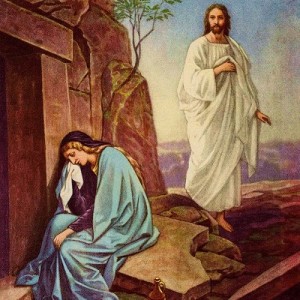
Tuesday Apr 06, 2021
He Is Risen! with Dr. Kent Lasnoski
Tuesday Apr 06, 2021
Tuesday Apr 06, 2021
“The Resurrection of Jesus,” says the Catechism of the Catholic Church, “is the crowning truth of our faith in Christ, a faith believed and lived as the central truth by the first Christian community; handed on as fundamental by Tradition; established by the documents of the New Testament; and preached as an essential part of the Paschal mystery along with the cross.”
The resurrection is not reincarnation. It’s not reanimation. Jesus, the incarnate Son of God, second Person of the Blessed Trinity really and truly died on the cross, was buried in a borrowed tomb, and rose again from the dead.
During Holy Week, our podcast featured Dr. Jeremy Holmes discussing the Gospel of John chapter 19—the cross. During this Easter Octave, Dr. Kent Lasnoski joins us to discuss John chapter 20 and the resurrection.
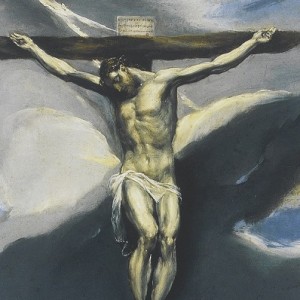
Tuesday Mar 30, 2021
Pilate, the People, and the Death of Jesus with Dr. Jeremy Holmes
Tuesday Mar 30, 2021
Tuesday Mar 30, 2021
Faithful cross, above all other,
One and only noble tree:
None in foliage, none in blossom,
None in fruit thy peers may be:
Sweetest wood and sweetest iron,
Sweetest weight is hung on thee.
While each time we see a cross or a crucifix and every time we attend Mass we have the opportunity to ponder Christ’s great sacrifice, during Holy Week it becomes almost the exclusive focus of our attention.
Writing about Good Friday in his book Death on a Friday Afternoon, Fr. Richard John Neuhaus wrote, “This is the axis mundi, the center upon which the cosmos turns. In the derelict who cries from the cross is, or so Christians say, the Alpha and Omega, the beginning and the end. The life of all on this day died. Stay a while with that dying.”
The Gospel of John, chapter 19 tells the story of that dying. In this podcast Dr. Jeremy Holmes discusses John 19 and the death of Jesus.
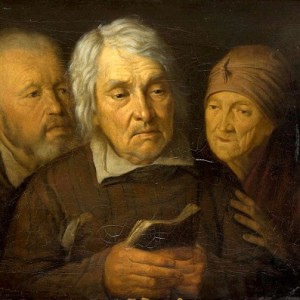
Tuesday Mar 23, 2021
Learning to Pray Hour by Hour with Msgr. Daniel Seiker
Tuesday Mar 23, 2021
Tuesday Mar 23, 2021
St. Benedict in his Rule wrote concerning prayer, “ ‘Seven times in the day,’ says the Prophet [psalmist], ‘I have rendered praise to you.’ Now that sacred number of seven will be fulfilled by us if we perform the offices of our service at the time of the morning office, of prime, of terce, of sext, of none, of vespers and of compline, since it was of these day hours that he said, ‘Seven times in the day I have rendered praise to you.’ For as to the night office the same Prophet says, ‘In the middle of the night I arose to glorify you.’ ”
Today priests, bishops, religious, and a surprising number of lay Christians pray through the day using the Daily Office. Msgr. Daniel Seiker, Wyoming Catholic College's Latin chaplain, explains what it means to pray the office and why it's important.

Tuesday Mar 16, 2021
College Admissions and the Classic Learning Test with Mr. Jeremy Tate
Tuesday Mar 16, 2021
Tuesday Mar 16, 2021
Education, as the current US Department of Education website has it, is all about “student achievement and preparation for global competitiveness.”
If that's the case, then it stands to reason that education will be entirely pragmatic, teaching skills—marketable skills—and that student success will be a function of pragmatic, marketable skills.
That’s especially clear in the seemingly esoteric world of college entrance tests—the SAT and ACT. Both tests claim to measure “college and career readiness” and schools, wanting their graduates to succeed “teach to the test,” conforming their curricula to the measured practical and marketable skills measured by the tests.
Partly as a result of his Christian convictions, Jeremy Tate who ran a company that helped students prep for the SAT and ACT, became disillusioned with the whole system and started a company to compete with the two giants of college admissions testing. Mr. Tate’s Classic Learning Test (CLT) continues to gain traction and it’s the test Wyoming Catholic College is most pleased to see in admissions transcripts. Mr. Tate visited Wyoming Catholic College and was kind enough to be our guest on this podcast.
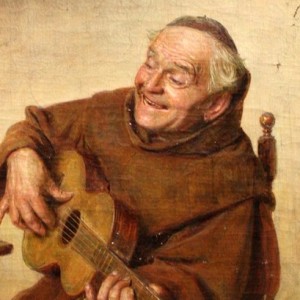
Tuesday Mar 09, 2021
The Consecrated Life with Dr. Jeremy Holmes
Tuesday Mar 09, 2021
Tuesday Mar 09, 2021
We Americans are nothing if not activists. In our homes, in our careers, in our parishes we’re the people who want to make things happen. And so it may come as a surprise to read Pope St. John Paul II’s words, “In the consecrated life the proclamation of the Gospel to the whole world finds fresh enthusiasm and power.”
In 1996, after a synod about the consecrated life, St. John Paul wrote the Apostolic Exhortation Vita Consecrata, “On the Consecrated life and its Mission in the Church and in the World.”
The consecrated life—that is, the life led by monks and nuns—“is at the very heart of the Church as a decisive element for her mission, since it ‘manifests the inner nature of the Christian calling’ and the striving of the whole Church as Bride towards union with her one Spouse.”
This past week, theologian Dr. Jeremy Holmes led our seniors through a discussion of Vita Consecrata and he is our guest on this edition of The After-Dinner Scholar.
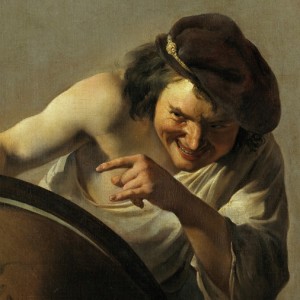
Tuesday Feb 23, 2021
Laughing at Perfection with Mr. Kevin Milligan
Tuesday Feb 23, 2021
Tuesday Feb 23, 2021
It may be hard to believe, but the Catholic Church has a patron saint of humor: Philip Neri who noted that, “A cheerful and glad spirit attains to perfection much more readily than a melancholy spirit.” And my observation is that we can become cheerful and glad people as we laugh.
Last week The After-Dinner Scholar featured Wyoming Catholic College senior, Miss Amanda Johnson, talking about her theologically rich oration about horsemanship as an aid to restoring our fallen humanity.
This week senior Kevin Milligan discusses his philosophically rich oration was entitled: “Laughing at Perfection: A Classification of Laughter and a Defense of Its Role in the Natural Perfection of Man.”

Tuesday Feb 16, 2021
Tuesday Feb 16, 2021
Winston Churchill once quipped, “There is something about the outside of a horse that is good for the inside of a man.” Wyoming Catholic College senior, Miss Amanda Johnson enthusiastically agrees.
Last week was senior oration week at Wyoming Catholic. As I explained last week, our seniors write a thesis in the fall and after Christmas break present some portion of their work in a half hour lecture followed by a half hour of questions from a faculty panel and from their peers.
Topics ranged from the poetry of Gerard Manley Hopkins to nostalgia in Willa Cather’s novels, from the chiastic structure of St. Augustine’s Confessions to cryptography, from hunting to horsemanship—the topic of this podcast. Our guest is Miss Amanda Johnson, one of our star horsewomen.

